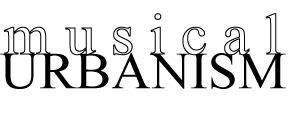“Paint By Number Heart” b/w “Copacabana”
Virgin/DinDisc Records VS 1115 (Canada)
Released probably in summer 1980
Produced by Mike Howlett
Like the rest of the world outside the UK, Martha and the Muffins’ home country Canada took longer to embrace “Echo Beach” for the simple reason that Virgin proposed a wait-and-see approach and delayed the song’s international release. Thus, as “Echo Beach” ended a 10-week spell on the UK singles chart in early May of 1980, it entered the Canadian market in time to greet the summer. (David Marsden, legendary disc jockey at Toronto alternative radio station CFNY-FM, still regards the Muffins’ biggest hit as “such a summer song.”) So although I don’t have an exact date or month of release for the Canadian follow-up single, “Paint By Number Heart,” it stands to reason it probably would have been the middle of summer 1980, while “Echo Beach” was still flourishing on Canadian airwaves.
“Paint By Number Heart” originates from the Muffins’ first year, 1977. A Martha Johnson composition, the song is a quintessential urban girl’s break-up song in early new wave style — neither as cold as a kiss-off from Carole Pope of Rough Trade (the venerable downtown Toronto band, then just entering the studio to record their breakthrough second album), nor as hormonal as something by Rachel Sweet (the Ohio teenager signed to England’s Stiff Records). Johnson plays her cards close to her chest; with a vocal range strongest in the middle octaves, her more strenuous assertions betray a lingering insecurity (e.g., “I gotta get awaayyy”).
The a-side is the same recording as the Metro Music version of “Paint By Number Heart” and reflects a substantial revision, most likely overseen by producer Mike Howlett, of the song’s previous arrangement. (My evidence here is a March 1979 mixing-board recording from a gig at Toronto nightclub the Edge; hopefully, the Muffins can agree to release this to the public some day.) Originally, the band played the verses on “Paint By Number Heart” at half the tempo of the rest of the song; keyboardist Martha Ladly played wurlitzer organ on these verses and joined in on vocals only for the chorus. Here, Ladly echoes Johnson on each line of the verse, providing an emotionally obsessive mirror to Johnson’s fragile bravado; the hiccup on Ladly’s “a-always asking” is a highlight of the second Martha’s performance on Metro Music. Further, Howlett sets the whole song at the uptempo pace of the chorus and speeds it up even more, while removing keyboards from the entire song and confining Andy Haas’s sax to post-chorus breaks. The result is one of the toughest, most streamlined numbers in Martha and the Muffins’ repertoire. Only the exaggerated whammy bar of Mark Gane’s guitar during the middle-eight keeps this from sounding like something Pat Benatar might convincingly record.
The b-side is “Copacabana,” the same recording released on the “Saigon” single in the UK. I don’t own this single, so I don’t know if the b-side contains the same reverse track in a double groove that the UK single does, but Discogs appears to suggest it doesn’t. As for this odd recording itself, see my discussion in the previous post.
“Paint By Number Heart” (long version) b/w “Paint By Number Heart” (short version)
Virgin/DinDisc Records DJ 35 (Canadian promo)
Released probably in summer 1980
Produced by Mike Howlett
The single I do have is this double-sided version of “Paint By Number Heart.” The a-side is again the Metro Music album version, although the label lists an incorrect running time of almost a minute longer. One wonders how many DJs might have been turned off by the looks of a four-and-a-half minute track; fortunately, the flip side offers a solution.
The b-side is an edit that removes the final instrumental break where Andy’s sax slyly reemerges over a slow-building rhythm section before the song ends in a dramatic crash. Now, the chorus reappears and fades the track out. Not the worst of single edits, I suppose — as with many of the early Muffins instrumental breaks, their frequency might alienate some unadventurous radio listeners who would otherwise like to live in that perfect world where Metro Music was the album of summer 1980.




